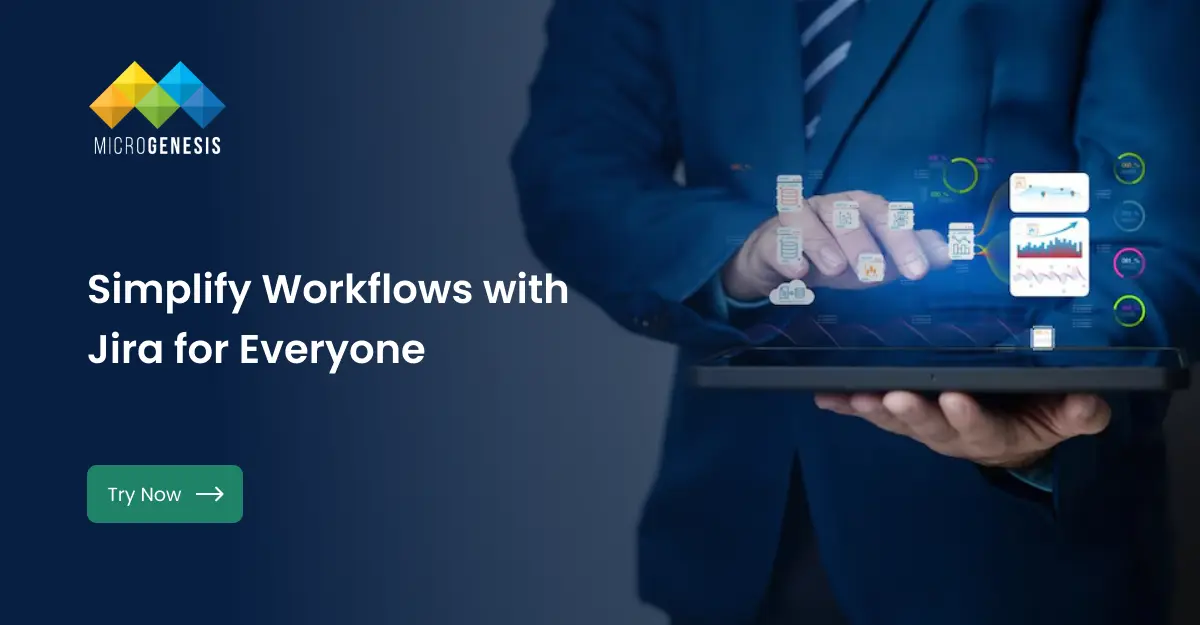While Jira is often associated with software development and IT service management, it also offers powerful solutions for business teams like HR, Marketing, Finance, Legal, and Operations. Jira Work Management (JWM) is designed specifically for non-technical teams that want to plan, track, and manage work efficiently without needing to learn complex tools or systems.
In this practical guide, we explore how Jira Work Management enables non-technical teams to organize projects, automate workflows, and increase transparency and accountability across departments.
Chapter 1: What is Jira Work Management?
Jira Work Management (JWM) is a business project management tool by Atlassian tailored for non-technical teams. Built on the same platform as Jira Software, it offers an easy-to-use interface with project templates, visual workflows, and collaborative features that simplify team coordination.
Key Features Include:
Pre-built templates for business use cases
Multiple project views (List, Board, Timeline, Calendar, Form)
Automation rules
Approvals and notifications
Integration with Microsoft 365, Google Workspace, Slack
Chapter 2: Why Use Jira Work Management for Business Teams?
1. Intuitive Interface for Non-Technical Users
JWM is designed with simplicity in mind. The drag-and-drop Kanban boards, list view, and form-based issue creation make it easy for any team member to adopt.
2. Department-Specific Templates
Whether you’re managing a marketing campaign or handling HR onboarding, JWM provides pre-configured templates so you don’t have to start from scratch.
3. Cross-Team Collaboration
JWM allows teams to work in a shared space, see updates in real-time, and assign tasks with clear accountability.
4. Workflow Standardization
You can design structured workflows that reflect your team’s process. For example, Finance teams can use approval steps, while Legal can track contract reviews.
5. Automation for Repetitive Tasks
With no-code automation rules, you can reduce the manual effort involved in task assignments, email notifications, and status transitions.
6. Enhanced Visibility
Stakeholders can monitor progress via dashboards, calendars, and custom filters, reducing the need for status meetings.
Chapter 3: Common Use Cases by Team
Marketing:
Campaign planning and execution
Social media calendar management
Creative review and approval workflows
Human Resources (HR):
Employee onboarding and offboarding
Leave requests and policy documentation
Recruitment process tracking
Finance:
Budget planning
Invoice processing and approvals
Expense report tracking
Legal:
Contract lifecycle management
Compliance documentation
Legal case tracking
Operations:
Facility management
Procurement and vendor tracking
Inventory requests
Chapter 4: Key Features That Empower Business Teams
1. Project Views for Every Style of Work
List View: Great for task-heavy teams needing simple checklists.
Board View: Visualize tasks like sticky notes (Kanban-style).
Timeline View: See task dependencies and project schedules.
Calendar View: Manage content calendars, due dates, or events.
Forms View: Collect structured information from stakeholders.
2. Forms for Request Intake
Create shareable forms to collect requests from other teams or departments without needing Jira access. All form submissions become actionable Jira tasks.
3. Smart Links & Integration
Easily link to Google Docs, Microsoft Teams files, or Confluence pages. See live previews and collaborate without context switching.
4. Automation Rules
Examples include:
Auto-assigning tasks based on request type
Notifying assignees when tasks are overdue
Moving tasks to “Done” once all subtasks are completed
5. Role-Based Permissions
Keep sensitive data secure while enabling visibility. Control who can edit, comment, or view projects.
Read more: How Growing Companies Can Implement Jira to Reduce Costs and Improve Efficiency
Chapter 5: Best Practices for Implementing JWM in Your Team
1. Start Small
Choose a single project or workflow to digitize. Avoid overwhelming users with too many views or automations upfront.
2. Use Templates, Then Customize
Start with a Jira template and adjust it to match your team’s processes. Rename fields, modify statuses, and tailor permissions.
3. Train and Onboard Users
Provide short walkthroughs or guides so users understand views, notifications, and how to create/update issues.
4. Use Automation for Administrative Tasks
Let automation handle status transitions, reminders, and escalations.
5. Keep It Visual and Clean
Use color-coded statuses, custom icons, and limited workflows to make the system approachable and user-friendly.
6. Create Dashboards for Leadership
Provide summary dashboards with charts showing task volume, completion rates, or overdue items.
7. Review and Improve Regularly
Conduct quarterly reviews to clean up stale issues, remove unused fields, and refine workflows.
Chapter 6: JWM vs. Traditional Project Tools
| Feature | Jira Work Management | Excel/Sheets | Trello | Asana |
| Prebuilt Business Templates | ✅ | ❌ | ✅ | ✅ |
| Workflow Automation | ✅ | ❌ | ❌ | ✅ |
| Views (Calendar, Timeline) | ✅ | Limited | ✅ | ✅ |
| SLA Tracking | ✅ (via Jira features) | ❌ | ❌ | ✅ |
| Form-Based Intake | ✅ | ❌ | ❌ | ✅ |
| Enterprise Security | ✅ | ❌ | ❌ | ✅ |
JWM offers more structure and governance than casual tools like Trello or spreadsheets while maintaining ease of use.
Chapter 7: When to Use Jira Work Management
You want structured workflows for non-tech teams
You need audit trails and permission controls
You’re already using Jira Software or JSM and want to extend access to business teams
Your current project tracking method (email, spreadsheets) lacks visibility and accountability
You want to reduce manual status reporting
Conclusion
Jira Work Management brings clarity and control to business operations. Whether managing recruitment, marketing, or legal tasks, it equips non-technical teams with the tools they need to collaborate effectively.
With an intuitive interface, automation, and seamless integration, JWM is a modern solution for today’s teams. MicroGenesis, a leading IT solutions company, helps implement and optimize JWM for maximum efficiency and business impact.
Looking to roll out Jira Work Management across your organization? Our certified experts can help you get started quickly with training, customization, and ongoing support.




